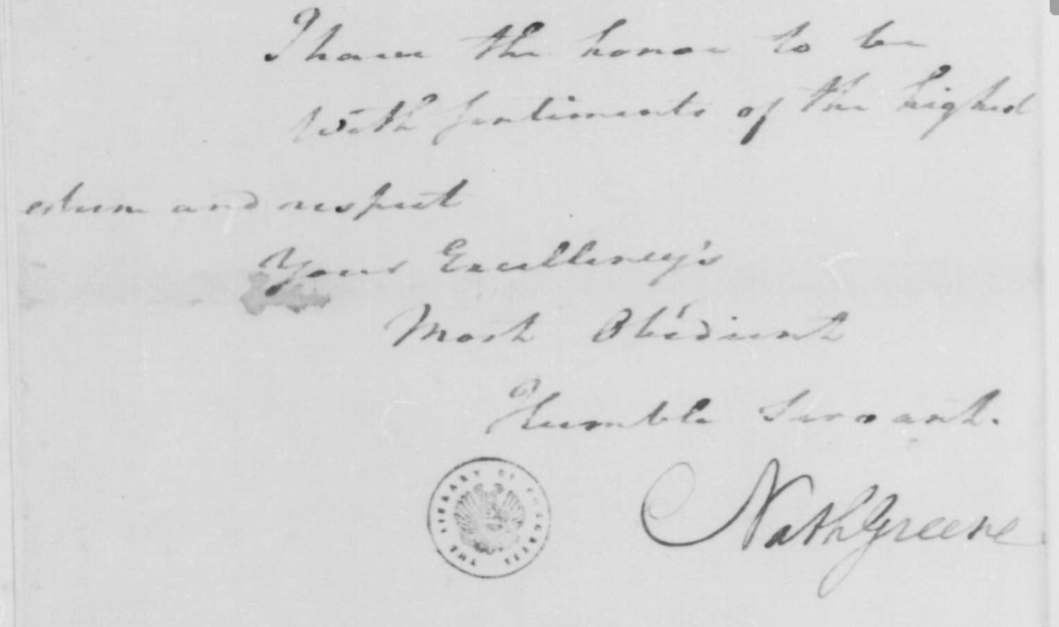
(1781) George Washington Papers, Series 4, General Correspondence: Nathanael Greene to George Washington, February 9. February 9. [Manuscript/Mixed Material] Retrieved from the Library of Congress, https://www.loc.gov/item/mgw427095/.
Letters About the Skirmish
to George Washington and Thomas Jefferson
Major General Nathanael Greene to George Washington
Camp Guilford Court House [N.C.] Feb: 9th 1781.
Sir
Since I wrote your Excellency by Major Giles, Lord Cornwallis has been constantly in pursuit of the Light Infantry and the prisoners, and is now between the Shallow Ford upon the Yadkin and Salem, one of the Moravian towns; and still pushing into the country with great rapidity. The moment I was informed of the movements of Lord Cornwallis, I put the army in motion on Pedee and left it under the command of Brigr Genl [Isaac] Huger and set out to join the Light Infantry in order to collect the Militia and embarrass the enemy ‘till we could effect a junction of our forces.
General [Daniel] Morgan after the defeat of Tarlton [Banastre Tarleton] had very judiciously made forced marches up into the Country and happily crossed the Catawba the evening before a great rain, which prevented the enemy from following him for several days, during which time the prisoners were got over the Yadkin and on their march for Dan River, which I hope they have passed and are in Virg.
